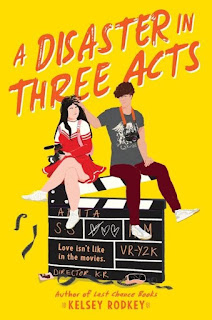Arthur
By: Giles Kristian
Location: FIC KRI
Genre: Giles Kristian
This book is number three but works as a standalone- the first two are now ordered!
Years have passed since the clash of shieldwalls echoed across the land. The Saxons are now the lords of Britain. And yet the bards still sing of Arthur - 'In our darkest time, when we need him most, shall he come again.'
Yet old Beran has no love of bards' songs. Nor of people, unless they are paying him to steal or kill. He is a mercenary, in the employ of the cutthroat Nabor ap Nabor, and he has been ordered to murder a boy fleeing a burning city. No ordinary boy either. No, this boy is the son of King Constantine and the grandson of High King Ambrosius. And he could be the hope of Britain . . . if he lives.
Betraying his companions and returning to a world he thought he had left forever, Beran gives his word that he will take the boy to the one place that still holds out against the Camelot.
Crossing a hostile land, they will meet the runaway lovers, Tristan and Isolde. They will seek the help of Guivret, called the Little King, and the Saracen, Palamedes, who once rode beneath Arthur's banner.
Hunted by Saxons, Nabor ap Nabor, and Queen Morgana, this unlikely band must fight for their lives and for each other. For if there's to be any hope for Britain, Beran must deliver the boy to Camelot. But to do that, he must also face his own past . .
REVIEW BY JAMES TIVENDALL
Arthur works as a standalone and, in isolation, is an absorbing and gripping historical fiction read. I have read Lancelot and Camelot however my memories of these books are hazy. If I had read them more recently, I feel it would have increased my enjoyment of Arthur by about five percent. Arthur has two point of view perspectives. The first is the 'present-day' Beran storyline which features characters from mythology such as Saracen warrior Palamedes and the lovers Tristan and Isolde. The other viewpoint is of past events through the eyes of a young Arthur. Here, familiar characters such as Merlin, Gawain, and Uther are present as moments from Arthur's formative years are depicted. As the novel progresses, similarities between a young Arthur and the rescued boy and his potential become clear. As I read further, it became engrossing to try and work out who Beran was in his past life before he was a mercenary and lost faith in humanity. He is a skilled fighter for his age, showcases fine horsemanship, and knew, in some capacity, famous warriors such as Galahad and King Constantine.
Through the two timelines in Arthur, we see Kristian's interpretation of the beginning and the end of this legendary age of warlords, battles, and kings. I was completely absorbed in Kristian's working of this period. It is dark and gritty, and Britain is an uncertain place with many rulers, rival gods, and competing factions. Magic is presented well in Arthur too as the presence of the druids and the messages delivered by omens seeming more grounded in reality than some retellings. However, these occurrences are witnessed as otherworldly and mysterious to the inhabitants of Britain present in Arthur. These elements add to the complicated murkiness of the Britain on show. Furthermore, Kristian's crafted world is hostile and unforgiving, and just because a character is either good or weak does not mean they are entitled to a happy ending.
Arthur contains many features I adore in well-crafted historical fiction tales. For example, there are gripping battles, vendettas to settle, pasts to escape from, a disgruntled protector figure, brotherhoods, friendships, honour and loyalty, and the high costs of fate, expectancy, and the weight of a nation on a set of shoulders. Kristian does some adept foreshadowing throughout the novel and the payoffs that I foresaw were highly satisfying. That being said, the finest moment was a twist I did not see coming. If I had to be more critical, I wish Arthur was longer, more complicated, and the 'present-day' action set over a longer timeframe. However, the immediateness and the pacing make it tough to put Arthur down.
To conclude, the two storylines are skilfully presented and equally important to the novel's incredible and emotional conclusion. Arthur is a moving, atmospheric, and enthralling experience that culminates The Arthurian Tales in the best possible manner.



Comments
Post a Comment